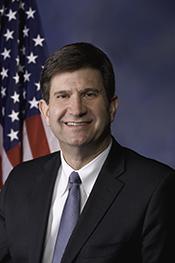0
Ethics in Public Service Act
1/11/2023, 1:47 PM
Summary of Bill HR 1077
Some key provisions of the bill include requiring public officials to disclose any financial interests or investments that could potentially influence their decision-making. This transparency is intended to prevent conflicts of interest and ensure that elected officials are acting in the best interest of the public.
Additionally, the Ethics in Public Service Act would establish an independent ethics committee to investigate allegations of misconduct or unethical behavior among members of Congress. This committee would have the authority to recommend disciplinary action, including censure or expulsion, for those found to have violated the ethical guidelines outlined in the bill. Overall, the Ethics in Public Service Act is designed to promote accountability and integrity among public officials, and to restore public trust in the government. By setting clear standards for ethical conduct and enforcing consequences for violations, the bill aims to uphold the principles of honesty and integrity in public service.
Congressional Summary of HR 1077
Ethics in Public Service Act
This bill provides statutory authority for provisions of the executive order titled Ethics Commitments by Executive Branch Personnel, which was issued on January 21, 2009, by President Barack H. Obama. The order required political appointees in the executive branch to sign an ethics pledge that restricted lobbying and related activities during and after government employment, including prohibitions on appointees communicating with their former agencies for two years post-employment and on lobbying agencies for the remainder of the presidential administration. The order was eventually revoked and replaced with executive orders from subsequent administrations.
On January 20, 2021, President Joseph R. Biden, Jr. issued an executive order titled Ethics Commitments by Executive Branch Personnel, which requires appointees to sign an ethics pledge with both similar and different provisions. For example, the order's pledge (1) prohibits post-employment lobbying, including lobbying on behalf of foreign governments, for the remainder of a presidential administration or for two years after appointments end, whichever is later; and (2) restricts appointees from accepting cash payments or non-cash benefits from former employers that are contingent on government employment (also known as golden parachutes).
